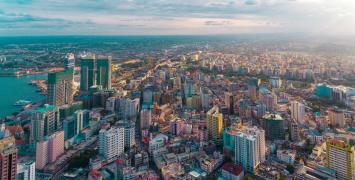Investigating the uncertain future of teaching profession
Teaching is certainly one of the most important professions in our society, yet its status and attractiveness have been systematically diminishing in the last decades. At the Université catholique de Louvain, Prof. Xavier Dumay is using his ERC Starting Grant to investigate the cultural and institutional transformations that have led to this "teaching profession crisis".

Over the last 20 years, the high rate of new teachers leaving the profession shortly after entering it and teachers shortages in general have constituted serious challenges in many education systems globally, not least in Europe. According to recent studies, this situation often reflects a relative decline in the economic and social status of the profession which started in the 1980s. It is also caused by increasing job responsibilities and less favourable employment conditions relative to other professions, in particular in terms of workload and salary scales.
This is paradoxical as teachers generally now have a higher average level of education and qualifications than they did in the past. Yet, education systems currently struggle to attract and retain the most qualified people. Many people turn to teaching only later in their careers or out of sheer need for a job, thus making the workforce ever more diverse in terms of entry pathways, level of qualifications and employment conditions.
These challenges appear common to many countries. As a result, an increasingly global space for education governance emerged since the end of World War II and was given extra momentum when education policies became linked to human capital and countries' economic competitiveness.
This is a remarkable development in the last 60 years, notes Prof. Dumay, and to some a controversial one too - given that educational systems were born in the 19th century as instruments to educate citizens and build nations and state structures.
Major players in this area include the World Bank, the OECD, and UNESCO. Since the 1990s the European Union institutions have also become increasingly engaged in education and the teaching profession in Europe.
Led by Prof. Dumay, Teacherscareers is the first project in Europe to compare the evolution of teachers' career paths over the last thirty years in Belgium, France and England, investigating them in relation to wider developments in European and global education governance. With his team, he studies the relationships between national and international policies and their outcomes for teachers, in terms of career decisions as well as labour market dynamics of supply and demand.
According to Prof. Dumay,
The role of cultural and institutional factors in the functioning of the labour market for teachers has so far not been properly understood. But these fields are of great importance to better grasp the nature of policies needed to create a stronger and more attractive profession.






